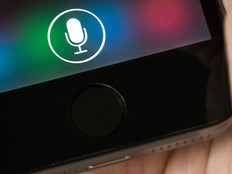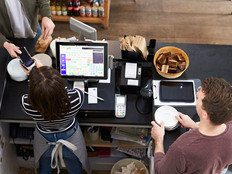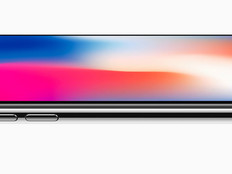4 Questions Answered by the Father of the Cell Phone, Marty Cooper
Chicago-born Martin Cooper, better known as Marty, hit the jackpot in 1973 when he demo’d the first cell phone as a division manager at Motorola. What he invented was commercialized as the Motorola DynaTac. For those born in the 1980s, it’s probably better known as the Zack Morris phone, which Mark-Paul Gosselaar’s character of the same name carried around with him in the hit 1990s teen show Saved by the Bell.
Technology blog The Verge had the opportunity to catch up with Cooper, who founded his latest company, GreatCall, with his wife. GreatCall is the company behind the easy-to-use Jitterbug cell phones for seniors.
Here are four questions from the Verge’s interview with Cooper:
VERGE: What phone are you using right now, and why are you using it?
COOPER: Actually, I'm talking to you on a Droid RAZR. I have a new phone I would guess every six months, although I'm being sorely tested lately because the phones are coming out so fast. I only had a Bionic for one month until they came out with the RAZR. Each time they get a little better, and I think they're pretty much on a par now — if you know how to use them — with the iPhone.
VERGE: Is it true that your first call [after demo’ing the Motorola prototype cell phone] was to a Bell Labs engineer? Is this an accurate story?
COOPER: It was actually to the guy that was running the whole Bell System cellular program. Joel Engel was in effect ... I was running the whole Motorola cellular program, I was a division manager at that time, and he was the AT&T equivalent. I have to tell you, to this day, he resents what Motorola did in those days. They thought that we were a gnat, an obstacle. They had a vision, and their vision was that they were going to run this thing, and do it in their way ... and of course, as I mentioned before, we believed in competition and lots of players. And we also believed — our religion was portables, because people are mobile. And here they were trying to make a car telephone and a monopoly on top of that. So that battle was the reason that we built that phone. We built the phone to prove to the world that you didn't have to have a monopoly running the business, you didn't have to have those resources to make cellular a reality.
VERGE: What developments in mobile in the years since have surprised you the most?
COOPER: Remember, when we made that first portable — you've seen pictures of it, I assume — there were no large-scale integrated circuits. There were no digital cameras. There were no personal computers. There was certainly no Internet, no World Wide Web. So how could you ever imagine that in my lifetime there would be tens of millions of transistors in a cell phone? And doing all the things you could do with that computing power. It happened gradually enough so that I don't think there was any moment of surprise, but I'm still amazed.
Every time I look at a cell phone and see how we struggled in the old days ... you know, the reason we built that first phone, people believe the story that it was built in three months, which it was. But in order to do that, we had to have a computer, which at that time was just kind of a medium-scale computer, that had a low enough drain to put it in a cell phone. So we had been struggling with this drain thing, and even with that, the DynaTAC had a battery life of 20 minutes, 20 minutes of talking. And it took the best technology available to make that happen, and now we complain if you can't get two days, and instead of running a couple thousand transistors, you're running 10 or 20 million transistors. Quite incredible.
VERGE: When was the first time you figured out that phones might evolve into the data-hungry devices that they are today? Because clearly, in 1973, voice was the focus, right? Not data. But when did it occur to you that this might happen?
COOPER: Well, you know, you have to go back to the two-way radio days. We found out in ... oh, I guess you have to go back to the 1950s, that there were companies that could not exist without a data system to support their business. We didn't call it data at that time ... we called them "software-based systems," whatever it was. But as an example, the concrete mixing companies found out that in order to be competitive, they had to have a computer that kept track of all these different kinds of concrete. There must be 50 different kinds of concrete. They needed to keep track of where the trucks are, make sure that they get dispatched properly. And all of that system was automated and run by data. And that was a competitive business, and the only way you could run it was to have this kind of software.
At that time, we were in the hardware business, right? We were selling two-way radios. And so we gave away the software, until we discovered that the software systems — these dispatch systems — were costing multiples of what the hardware was. So at that time, you start to get a glimmer that what we call data today was going to be important. The only thing that made this thing practical in the cellular business was large-scale integrated circuits. As soon as you could accommodate the processing, it was obvious that data was going to be important. But until then, the only data systems were two-way radios because you could never get the current drain right.
Read Cooper’s illuminating interview in full on The Verge.








